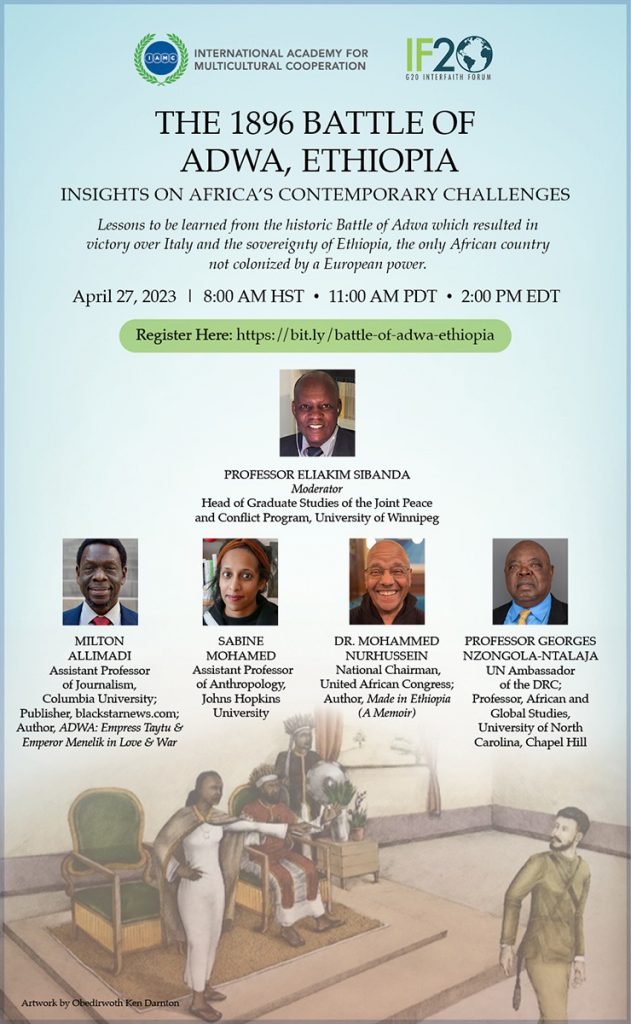Webinar Participants
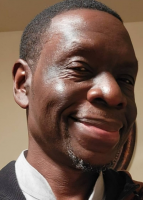
Milton Allimadi
Milton Allimadi is an Assistant Professor of Journalism at the Graduate School of Journalism at Columbia University and Adjunct Professor of History at John Jay College of the City University of New York. He is the publisher of blackstarnews.com a Pan-African oriented media outlet. Allimadi hosts the weekly “Black Star News Show” on WBAI 99.5 FM Radio, also streaming on www.wbai.org and he hosts a podcast called African History Club. He is the author of “Manufacturing Hate—How Africa Was Demonized in Western Media” and “ADWA: Empress Taytu & Emperor Menelik in Love & War,” (2023).
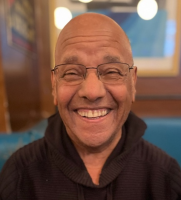
Dr. Mohammed Nurhussein
Dr. Mohammed Nurhussein, the national chairman of the United African Congress (UAC) served as chief of Geriatrics at State University of New York Downstate Medical Center in Brooklyn until his retirement as Associate Professor of Medicine Emeritus. He is on the executive Board of Ethio-American Doctors Group (EADG), a consortium of some 350 Ethiopian doctors in the US and Canada committed to building state of the art $100 million project, internationally accredited hospital in Addis Ababa. Dr. Nurhussein is also a Board member of Brooklyn for Peace and an active member of Physicians for Human Rights. He serves as national chairman of UAC, a Pan African organization based in New York. He is the author of a memoir “Made in Ethiopia” published by Africa World Press/Red Sea Press.
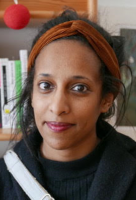
Sabine Mohamed
Sabine Mohamed is Assistant Professor in the Anthropology Department at Johns Hopkins University. She is a political, urban, and economic anthropologist. She received her doctorate in Anthropology from the University of Heidelberg in 2021. Her dissertation and current book project, entitled Losing Ground: Emergent Black Empire and Counter-Futures in Urban Ethiopia, ethnographically explores how categories of blackness and race, as well as experiences of urban and national dispossession are attached to an infrastructure of emergent empire in East Africa. This work is based on her fieldwork in Addis Ababa working with young informal laborers, female domestic workers, as well as refugees and deported returnees of Eritrean descent. She has also conducted archival research that traces the multi-directional transatlantic circulation of blackness, between the Caribbean, North America, and Ethiopia. Her next project will follow female laborers through the gendered and racialized routes of economic exchange, Chinese investment, and resource extraction in the East African corridor. In addition to her research in East Africa, she has an ongoing long-term project situating black feminist movements, sexualities, and practices of belonging in contemporary Germany.
Before joining Johns Hopkins University, Sabine was a “Bridge to the Faculty” postdoctoral research fellow at the Department of Anthropology at the University of Illinois at Chicago and prior to that a doctoral research fellow at the Max Planck Institute for the Study of Religious and Ethnic Diversity. She has been the co-convenor of the Network for Contemporary Anthropological Theory with the European Association for Social Anthropologists (2020-2022), and is also a founding member of bildungslab*, a collective of feminist scholars of color in the German-speaking world on reimagining education, the classroom, and pedagogy.
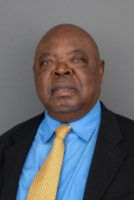
Professor Georges Nzongola-Ntalaja
Georges Nzongola-Ntalaja is a professor of African and Global Studies at the University of North Carolina at Chapel Hill since 2007. He is a graduate of Davidson College (BA in Philosophy, 1967), the University of Kentucky (MA in Diplomacy and International Commerce, 1968) and the University of Wisconsin-Madison (PH.D in Political Science, 1975). He has taught at Howard University (1978-97); the Universities of Kisangani and Lubumbashi in the Democratic Republic of the Congo (DRC), March 1971 to December 1973; Atlanta University (1975-77); the University of Maiduguri in Nigeria (1977-78); and held visiting professorships at Davidson College (1990, 1999) and El Colegio de Mexico in Mexico City (Summer 1987). Fellow of the African Academy of Sciences since 1989, president of the African Studies Association of the United States (1987-88), and president of the African Association of Political Science (1995-97), Professor Nzongola is the author of numerous publications on Congolese and African politics. His book, The Congo from Leopold to Kabila: A People’s History (London and New York: Zed Books, 2002), won the 2004 Best book Award from the African Politics Conference Group (APCG), an organization of American political scientists affiliated with the African Studies Association (ASA) of the United States and the American Political Science Association (APSA). Since January 2022, he is on professional leave as the Ambassador of the Democratic Republic of the Congo to the United Nations in New York.
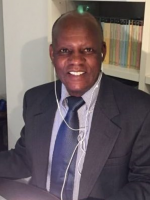
Professor Elaiakim Sibanda
Dr. Eliakim M. Sibanda is a Committee Member of the G20 Interfaith Forum Anti-Racism Initiative. He is a globally acclaimed advocate for human rights, peace, and justice. Dr. Sibanda is Professor and Head of Graduate Studies of the Joint Peace and Conflict Program at the University of Winnipeg, Canada where he helped create the UW Global College and the BA in Human Rights and Global Studies. He was involved in establishing the Oral History Centre at UW and the joint UWinnipeg/Winnipeg Art Gallery Chair in History of Indigenous Arts in North America.
